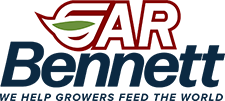Agronomy entails the water and soil profiles/environment as well as recommended nutrient inputs for various crops our customers grow. While this is common knowledge, our mission is to focus on impacting the customers plant health and ultimately increase production/yield. Easy to say, more challenging to execute without a consistent message and uniform methodology.
Overall, the agronomy department has played more of a support role for PCAs/CCAs. While we view this effort as critically important and necessary, we aim to position agronomy efforts as a driving force within the company. From how agronomy is perceived all the way to the adoption and execution of our methodologies concerning plant health and nutrition.
One example is proactively sharing strategies with the advisors of solutions to timely solve issues they face each day/week/month of the growing season. Less product label focused, and more solution based. Arming advisors with simple but effective information they can craft into a position while speaking with their growers. Almond trees at bloom, nut fill and post-harvest.
Information gathering is critical. The utilization of customer analytical reports (water, soil and plant tissues) combined with GAR Bennett (GB) advice, to provide solutions to anticipated problems, current challenges and overall systemic plant health. This will be an ongoing effort, constantly evolving and improving as we continue to grow our advisor and crop base. Ultimately, a “GBU” (GAR Bennett University) platform would be ideal in helping drive advisors to expand their efforts to capitalize on grower opportunities.
Regarding the fertigation platform (HYE-V), the agronomy department will be intimately involved in the nutrient input recommendations for each independent filter station site. More to come on this.

